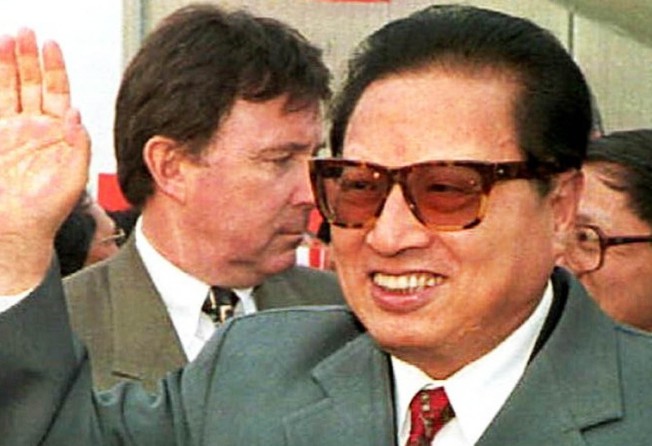Former China Communist Party senior official Qiao Shi dies at 91
Former member of Politburo Standing Committee argued for turning the mainland’s legislature into an effective law-making body

Former chairman of the National People's Congress Standing Committee Qiao Shi , known as a moderate reformist, died in Beijing yesterday morning aged 91.
Xinhua reported Qiao died of an unspecified illness for which he was being treated.
Qiao was a member of the Politburo Standing Committee - the Communist Party's top decision-making body - from 1987 to 1997, at a time when the party was led by Zhao Ziyang and then Jiang Zemin . A statement by the Central Committee called Qiao a "time-tested and loyal communist soldier" and an "outstanding proletarian revolutionist".
Qiao was considered a political rival of former president Jiang in the 1980s, and seen as a contender for the top leadership. But Jiang became president in 1993, while Qiao took up the position of NPC chairman.
While there, he tried to rid it of its image as a rubber-stamp body, insisting the institution had a crucial role to play in establishing the rule of law. He oversaw its work in economic legislation and strongly advocated for strengthening the mainland's legal system. Qiao retired in March 1998 and since then remained out of the limelight.
"Everyone should do things according to the law. The constitution and the party constitution both stipulate that the party should also act within the boundaries laid down by the law," he was quoted as saying during an inspection visit to Guizhou province in 1994.
Qiao also called for a rejuvenation of the leadership. "It is only when young cadres are given the chance for promotion that China will have hope for the future," he reportedly said at a private function.
Qiao was considered as having had a key role in how Beijing handled the 1989 Tiananmen students' democracy movement, but there is no consensus on whether he supported the crackdown against the students.
Born in Shanghai, Qiao took part in underground party activities from the age of 16 and was a major leader of Shanghai's student movement. At 30, he was transferred to the iron and steel industry and worked for two state-owned companies.
He was transferred to the party's International Department but was harshly persecuted and forced to work on a farm in the countryside during the Cultural Revolution.
After the turmoil, Qiao returned to the International Department as its vice-chief. He rose through the ranks and served as the Central Committee's chief of staff, chief of the Organisation Department, secretary of the Politics and Law Committee and director of the secretariat. He oversaw the Central Commission for Discipline Inspection from 1987 to 1992 and was the principal of the Central Party School before becoming the chairman of the NPC Standing Committee in 1993.
Qiao Mu , a professor at the Beijing Foreign Studies University, said it was difficult for the public to accurately assess the late cadre's character.
"Most simply rely on their subjective imagination or incomplete records to make comment. Those who complimented him reflect their lack of satisfaction with modern-day leaders. Qiao Shi kept a low profile and his family is scandal-free, his reputation is quite positive in that regard," he said.
Additional reporting by Mimi Lau